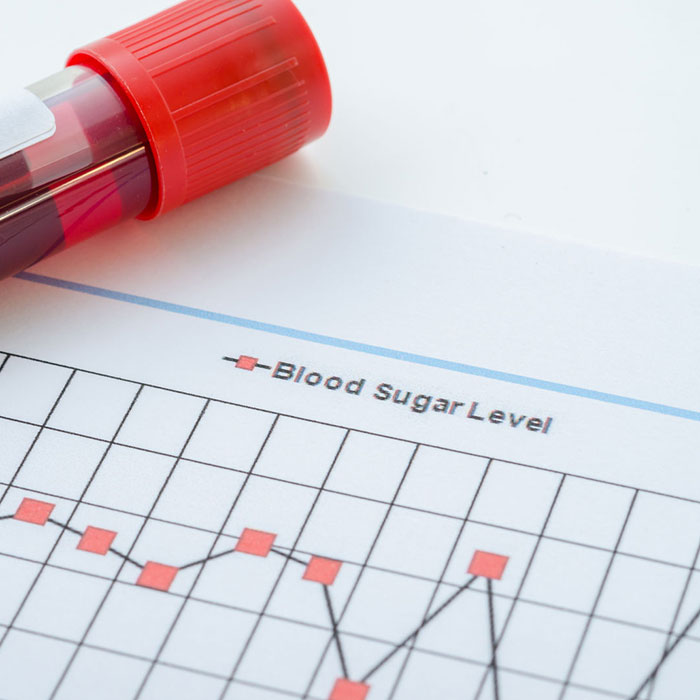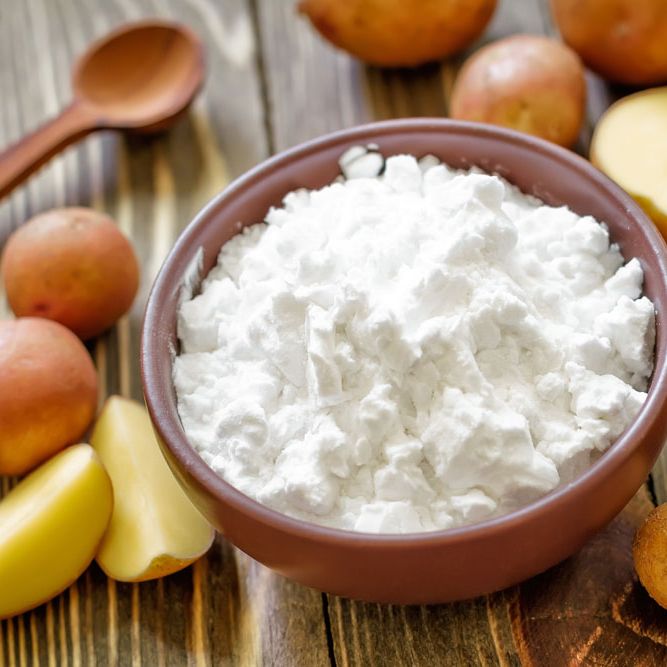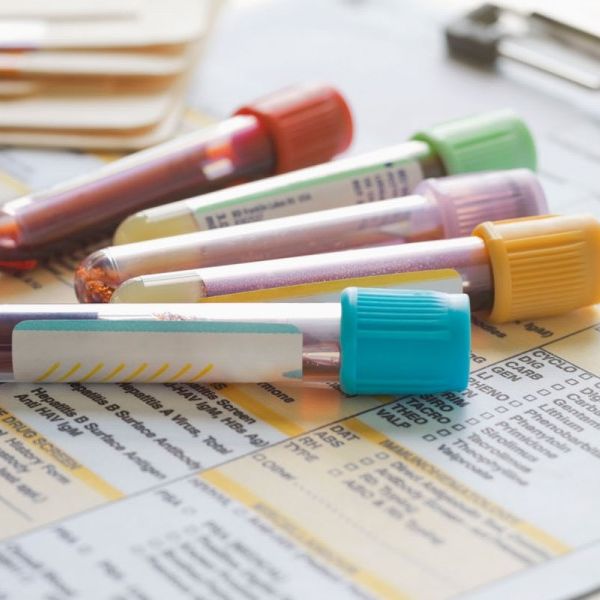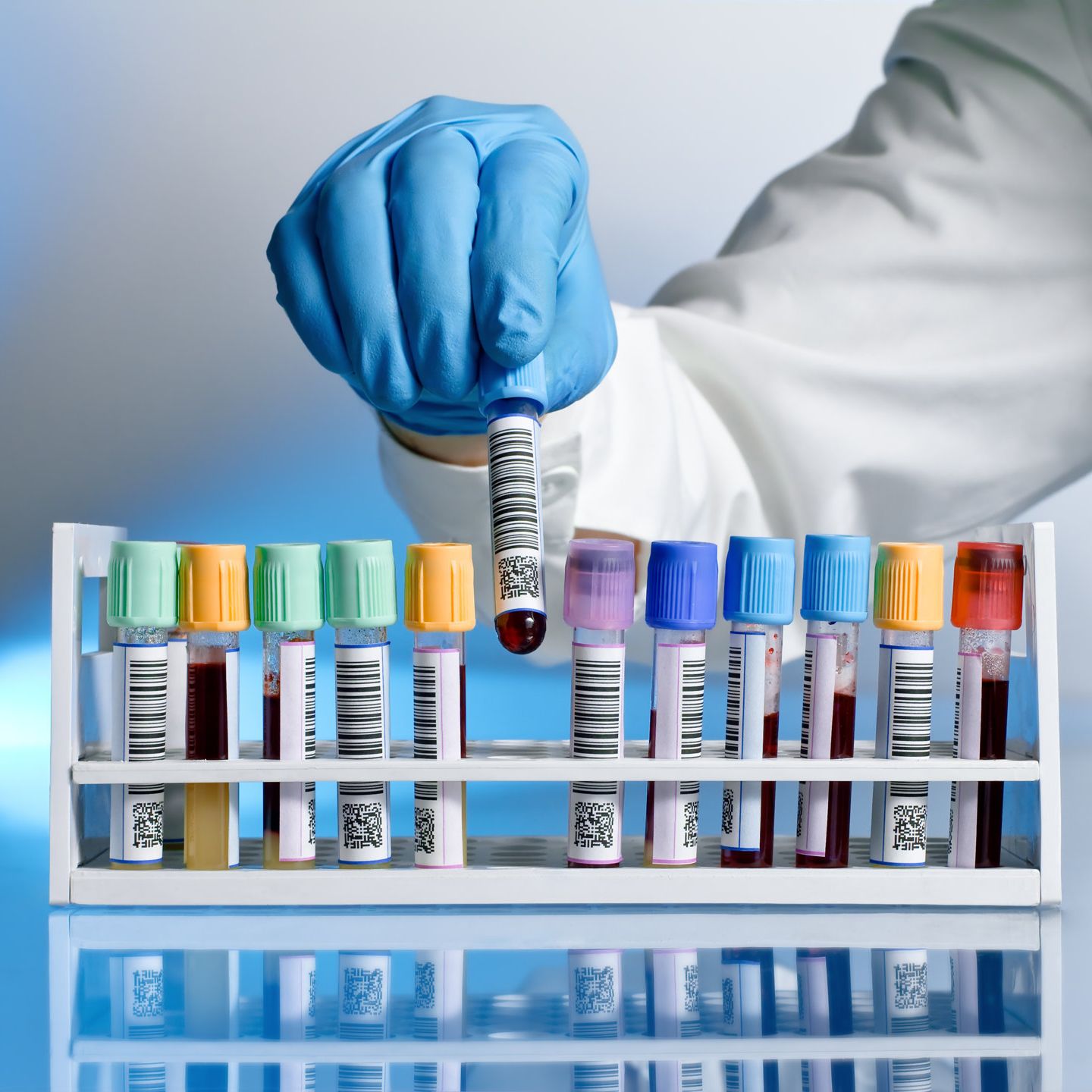Tolerance laboratory tests
The following tolerance laboratory tests are available at our clinics without long waiting and referral:
Blood sugar tolerance
Lactose tolerance
Starch tolerance
Iron tolerance
Cortisol daily rhythm test

Blood sugar tolerance
Also known as oral glucose tolerance test (OGTT). This laboratory test is used to detect gestational diabetes, diabetes that has not yet caused complaints, and the condition that precedes it (decreased glucose tolerance), and to assess carbohydrate metabolism.
OGTT should not be performed in case of diabetics if a diagnosis of diabetes can be made based on fasting or postprandial blood glucose.
Before the glucose tolerance test, it is advisable to consume a balanced meal containing at least 150g of carbohydrates per day.
The test is performed in the morning on an empty stomach with two samples. First, a fasting blood test followed by a blood sugar level check. If the measured value is below 7.00 mmol/l, the test can be performed, at which point the patient should consume a sweet solution containing 75g of glucose. Then, after 120 minutes, a second blood sample is taken, from which glucose tolerance can be determined after checking the blood sugar level.
In case of normal metabolic function, the 120-minute value should return to a level around the empty stomach value. If it remains elevated, a carbohydrate metabolism disorder may be suspected.
Based on the blood glucose values measured 2 hours later, we speak of a normal glucose tolerance of less than 7.8 mmol/l, a decreased glucose tolerance of 7.8-11.0 mmol/l, and a value above 11.0 mmol/l we talk about diabetes.
It is important to highlight that the finding alone is not a diagnosis. Be sure to consult your doctor about the result, as your diabetes will determine the need for multiple measurements, after which your doctor will recommend the appropriate treatment for you.
Lactose tolerance
The lactose intolerance test examines the breakdown of lactose and is able to detect a disorder in the breakdown of lactose.
During the test, 3 blood samples are taken: the first on an empty stomach, the second after 60, and the third after 120 minutes. After the first sampling, the patient should consume a solution containing 50 grams of lactose. During the second and third blood sampling, a change in blood glucose levels is observed compared to the fasting value: if the lactase (enzyme that breaks down lactose) activity is normal, the blood sugar level rises by 1 mmol/l compared to the initial value.
In case of lactose intolerance, an increase in blood sugar levels is delayed and typical symptoms (abdominal cramps, diarrhoea, bloating, etc.) also appear.
The finding alone does not qualify as a diagnosis, lactose intolerance may develop secondarily due to other diseases. See your doctor to make an accurate diagnosis and to determine the optimal treatment.


Starch tolerance
The amylum (starch) tolerance test (ATT) tests the function of the pancreas when starch (amylum) is given into the body.
The test is performed on 2 consecutive days. On the first day with 5 blood samples, the first on an empty stomach followed by the consumption of a solution containing 75 grams of glucose, and then after 30, 60, 90 and 120 minutes another blood sample to monitor the development of blood sugar levels.
On the second day, 4 blood samples are taken: the first is also on an empty stomach, followed by 3 additional blood samples half an hour apart. After the empty stomach sampling, the patient must consume a solution containing 75 grams of amylum. Half-hourly blood sampling looks at the resulting change in blood sugar levels, as successful breakdown of starch requires amylase enzyme, and successful breakdown involves an increase in blood sugar levels.
Pancreatic amylase production and thus pancreatic function can be detected by comparing blood glucose values acquired during glucose tolerance test to blood glucose levels gained during starch tolerance test. Abnormal ATT levels may indicate intestinal diseases in addition to pancreatic disease.
Based on the results, your doctor will make an accurate diagnosis and determine the treatment you need.
Iron tolerance
The purpose of the iron tolerance test is to determine the absorption of iron. It is common for the iron in tablets used to treat iron deficiency to be only partially or not properly absorbed during treatment and thus not providing the expected results.
During the test, the first blood sample is taken on an empty stomach, and then after the patient has taken 2 Maltofer tablets, a second blood sample is taken after 4 hours to check absorption.
The measured values are individual, so the effectiveness of the treatment is determined by the treating doctor based on the laboratory result.


Cortisol daily rhythm test
This test can detect adrenal insufficiency. When the adrenal cortex is overactive, a hormone called cortisol is also overproduced. Cortisol affects all tissues in the body and is therefore one of the vital hormones. Its level is highest at dawn and in the morning and very low at night.
During the test, 2 blood samples are taken on 2 consecutive mornings. On the first day, the first blood sample is taken on an empty stomach between 8 and 10 a.m. At midnight that day, the patient should take 2 tablets (2×0.5mg) that “imitates” the effects of cortisol, so if cortisol production is properly controlled, cortisol production should decrease. This change is measured by a sample taken between 8 and 10 a.m. the next morning.
If there is no decrease, there is a suspicion of adrenal insufficiency, for which your doctor may recommend further tests to make an accurate diagnosis and determine the appropriate treatment.
When is the result expected?
Blood sugar tolerance: 2nd working day following the test
Lactose tolerance: 2nd working day following the test
Iron tolerance: 2nd working day following the test
Starch tolerance: 2nd working day following the test
Cortisol tolerance: 3rd working day following the test
Prices of tolerance laboratory tests
Blood sugar tolerance (2-point) package price: 8 000 HUF
Blood sugar tolerance (5-point) package price: 20 000 HUF
Lactose tolerance package price: 12 000 HUF
Starch tolerance package price: 20 000 HUF
Iron tolerance package price: 8 000 HUF
Cortisol tolerance test package price: 9 000 HUF
